This summer, students at Renmin University of China (RUC) took part in various social research programs, leaving their footprints on the vast land of rural China. Let’s follow in their footsteps and embark on a journey of learning and exploration.
Zhang Xinyi, School of Journalism and Communication, Undergraduate student, Class of 2021
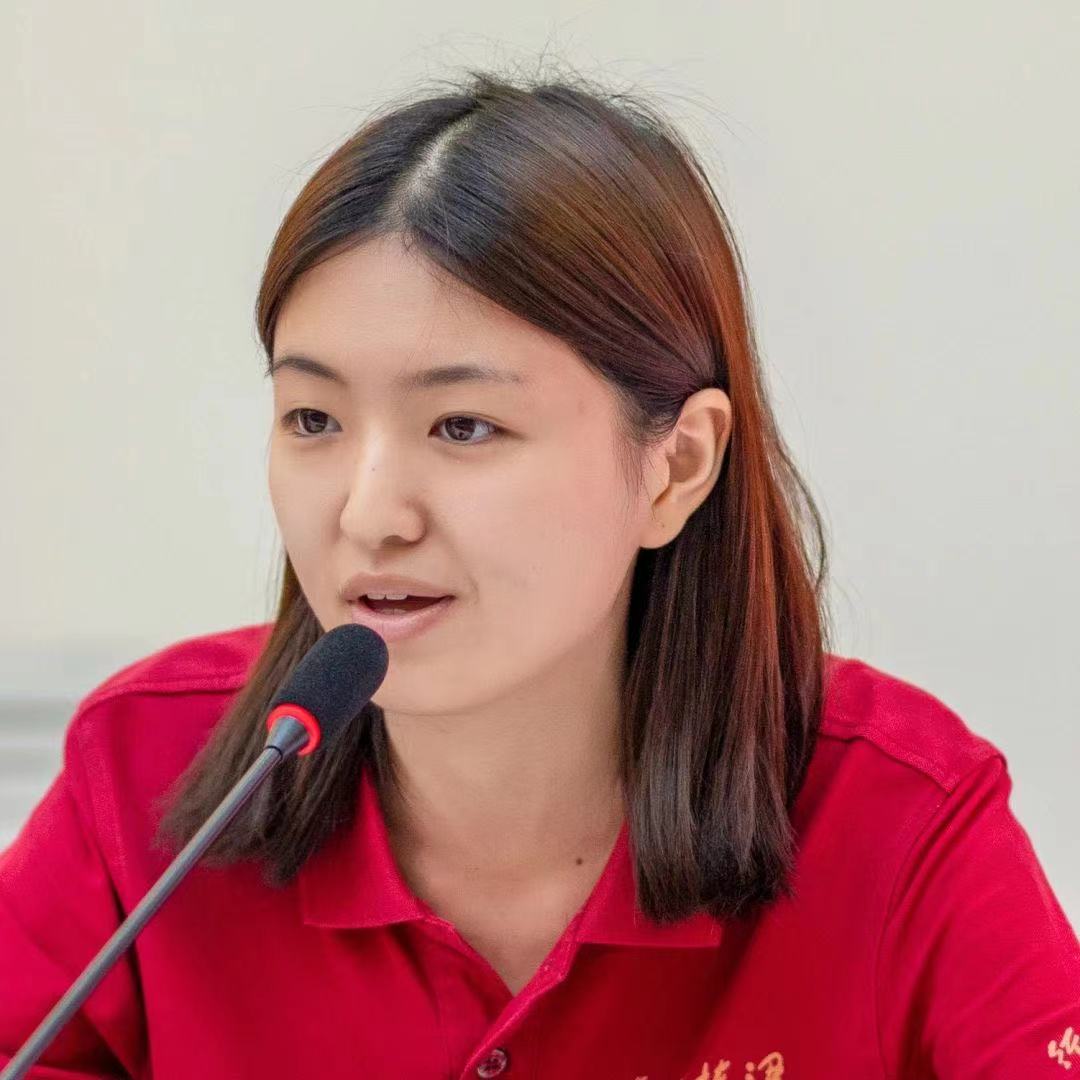
“Pursuing One’s Aspiration” Special Social Practice
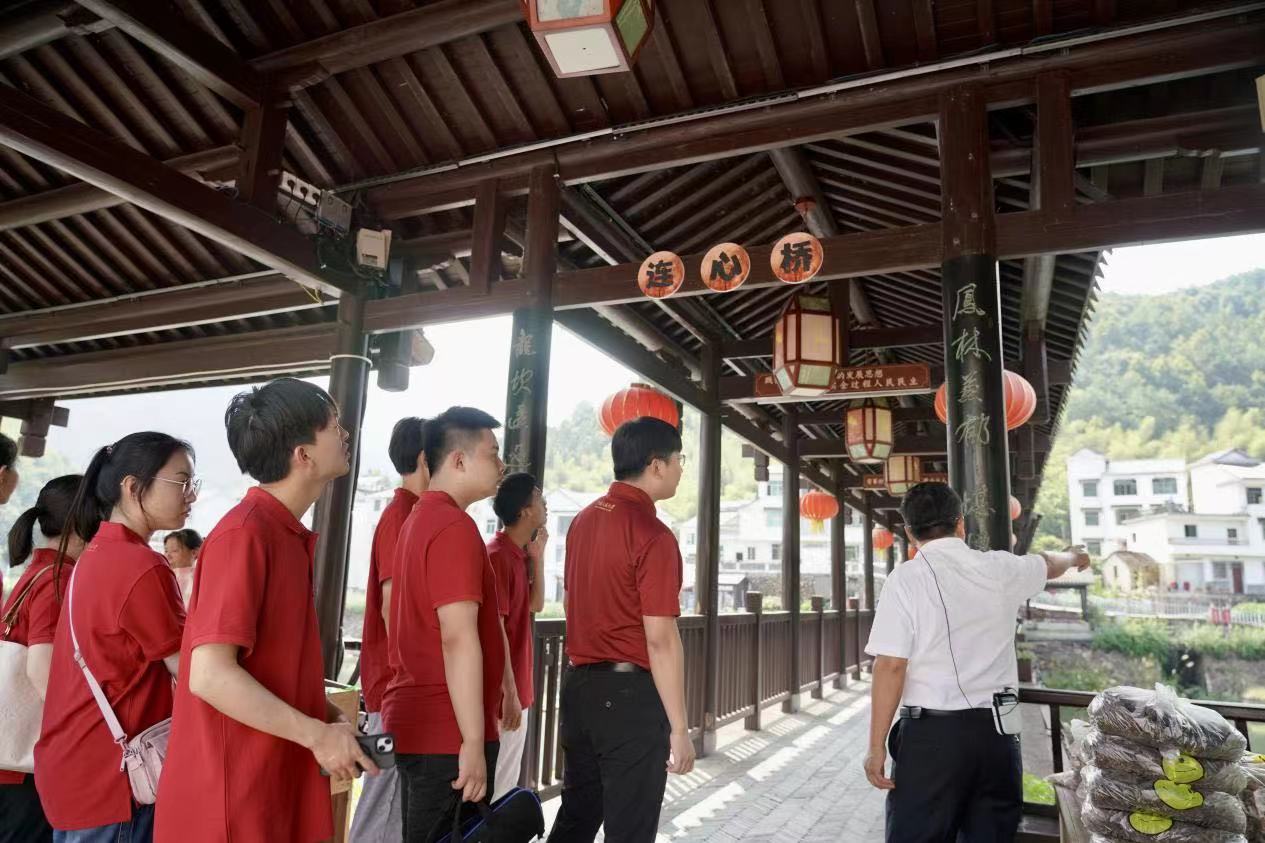
Before arriving at Xiajiang Village in Chun’an County, I had many imaginations about it. I imagined that it had escaped poverty, but that was it. However, today’s Xiajiang Village not only pushes forward agricultural development but also allows its villagers to use their expertise and excel in various fields. If you walk into villager Chen Sulan’s creative small shop, you can see all sorts of lifelike hand-painted stones. The current village head, Jiang Lijuan, used her work experience in Hangzhou to create high-quality rural guesthouses when she returned to her hometown to start a business. The “Two Mountains” Theory has taken shape as the window scenery of rural houses, the fruits and vegetables in greenhouses, and the specialties produced in Xiajiang. Just as the sign at the village entrance says, “The place where dreams begin”, this is a new side of rural development in China.
Chen Lu, School of History, Doctoral Student, Class of 2023
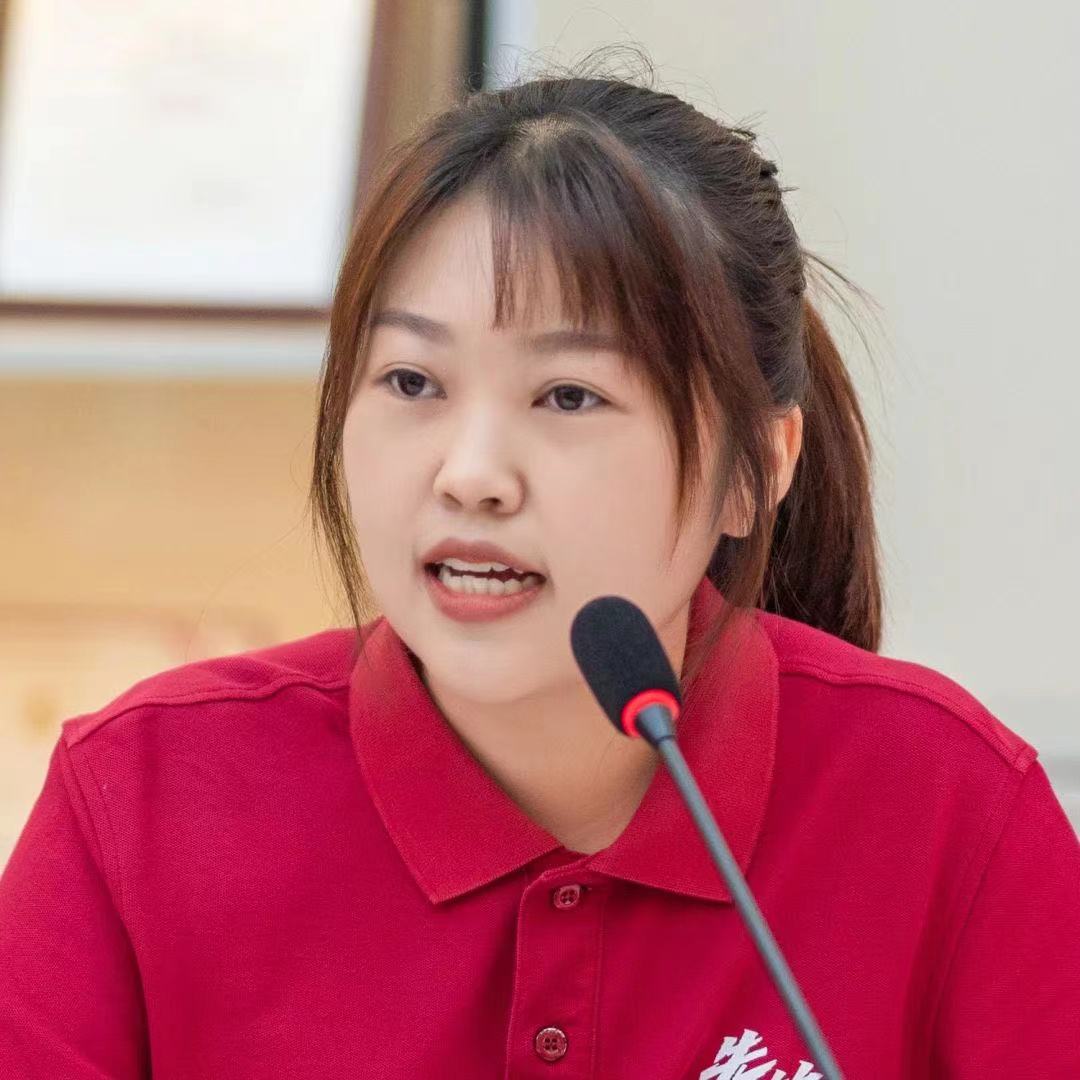
“The Frontier of the Nation” Social Research
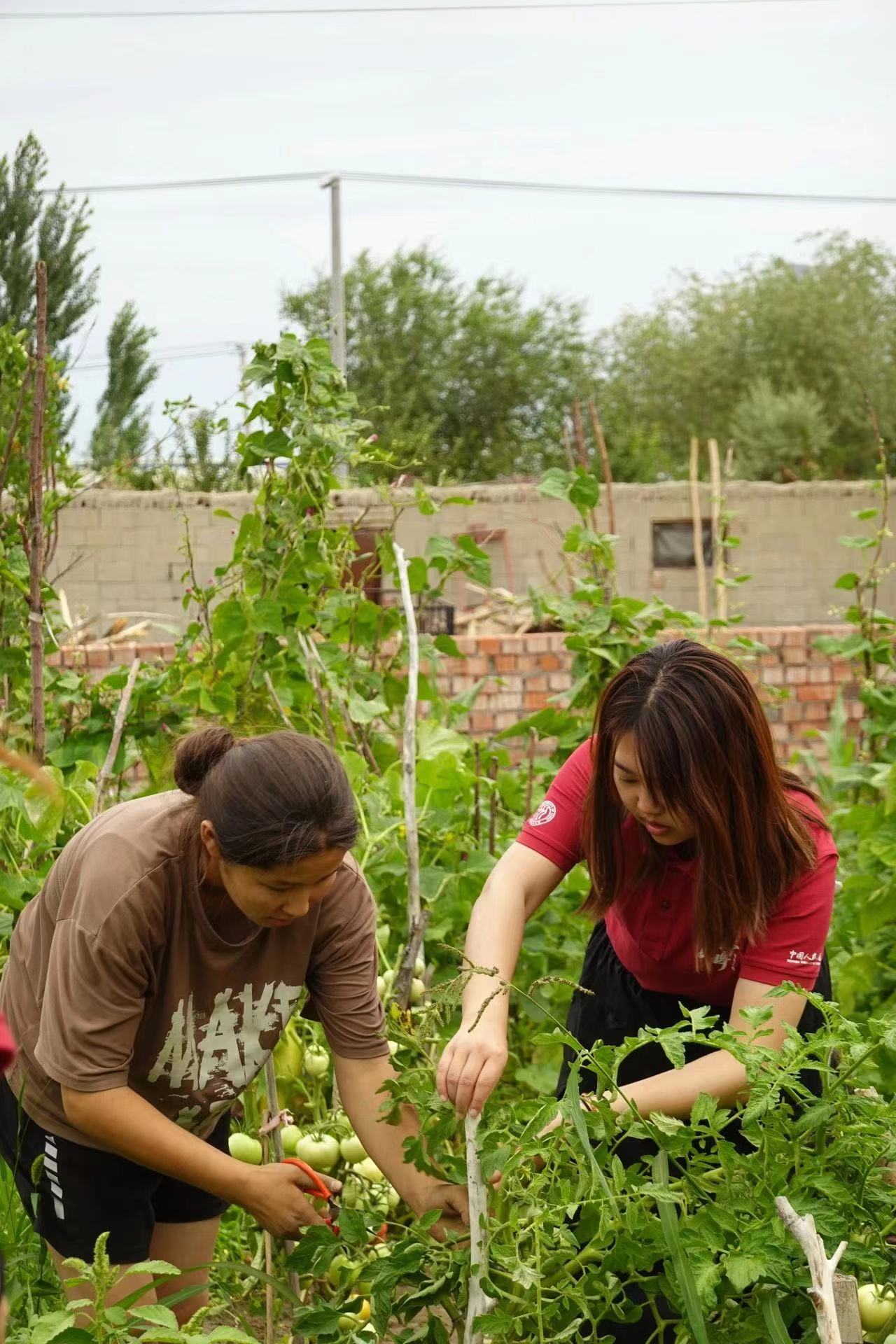
During our visit to Xinjiang, we observed many examples of ethnic unity and mutual assistance, integrated communities, and poverty alleviation through cooperation. We also saw Xinjiang Production and Construction Corps operating independently to establish steel and agricultural towns, playing a crucial role in ensuring stability in border areas. It is important to understand the historical processes that led to the region’s solidarity, the challenges that emerged during its development, the existing risks, and the uniqueness of its administrative system. In our research and interviews, we aimed to dissect the present based on a historical and future-oriented perspective. During the learning and writing process, it is essential to constantly reflect on the lessons from history and practice the principles of “serving the world and benefiting the people” and “defending the border through academic efforts”.
Yang Tianqi, Renmin Law School, Master’s Student, Class of 2022
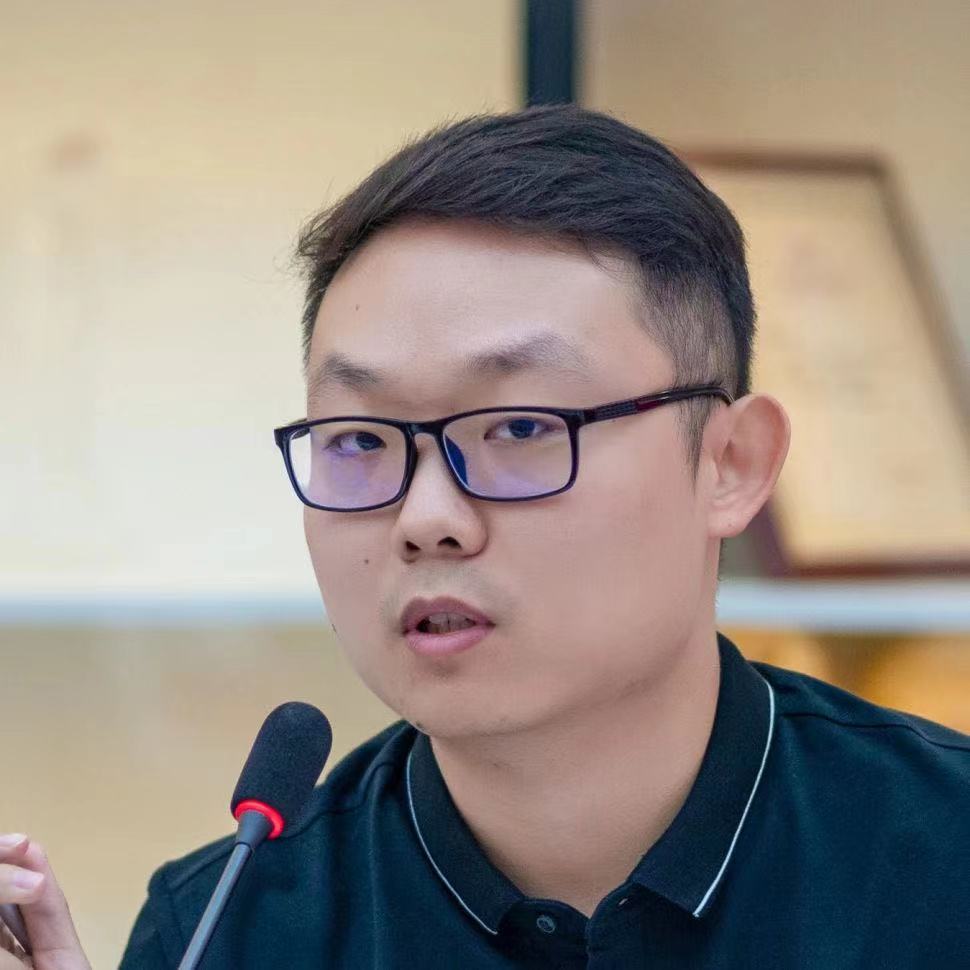
“Understanding China” Academic Training Program

This summer, 8 graduate students from 6 different schools formed a team to participate in the “Understanding China” Academic Training Program. We traveled to Sanming, Fujian Province, to conduct research on “The Digital Empowerment of the Transformation and Upgrade of Sanming’s Traditional Industries”. During this experience, I deeply realized the practical significance of addressing the “important and significant issues faced by regions in the process of reform and development” and the historical mission entrusted to graduate students.
So far, we have completed an internal reference report for the Fujian Government and a research report exceeding 20,000 words. Sanming is located in the central region of the former revolutionary base. Although our research only addressed a small issue in Sanming’s development process, our research efforts will not stop here. How to achieve sustained and high-quality development in old revolutionary base areas will be a significant and ongoing research topic that we will continue to focus on and delve into.
Zhao Jiaqi, School of Journalism and Communication, Doctoral Student, Class of 2020
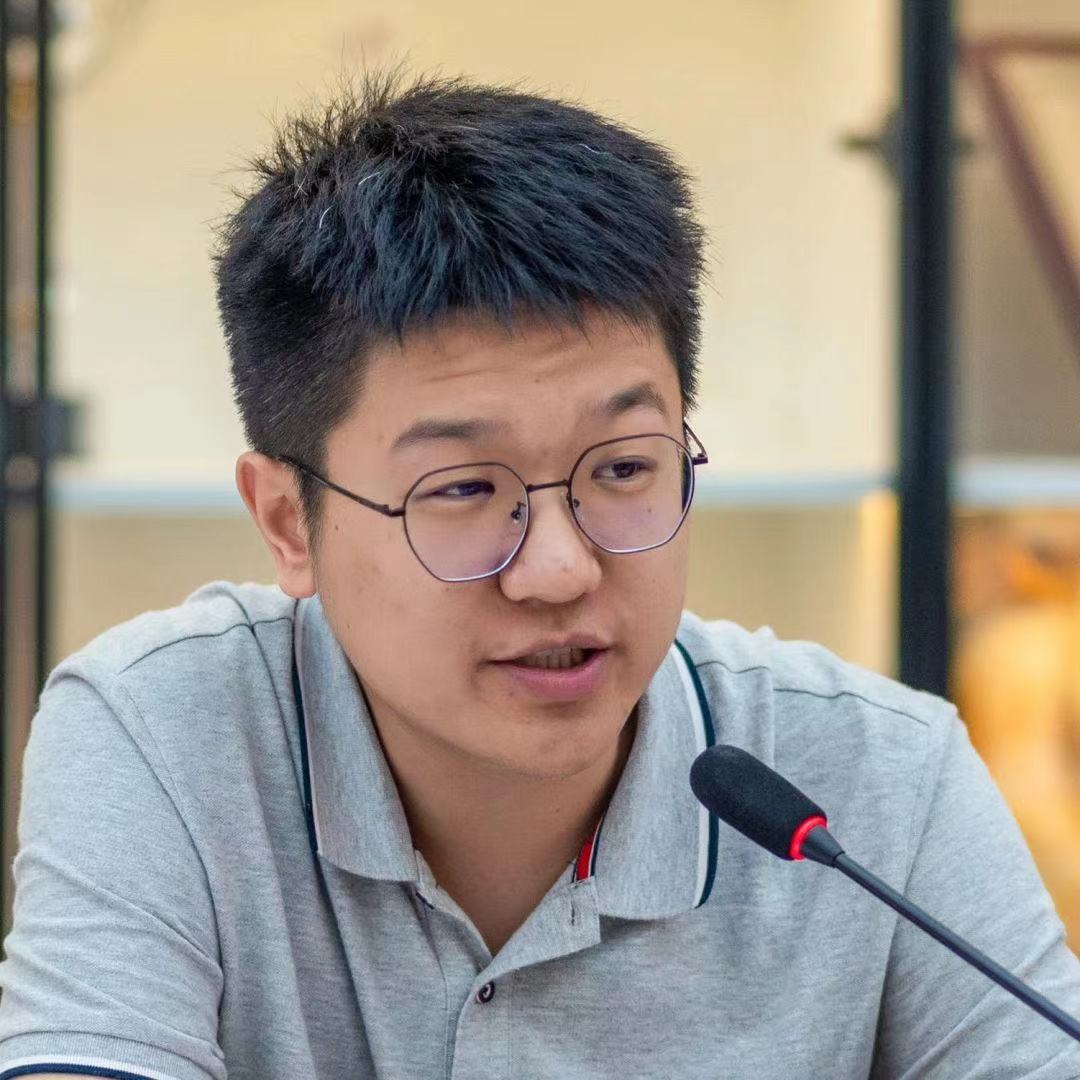
“Governance and Politics” Practical Training Program
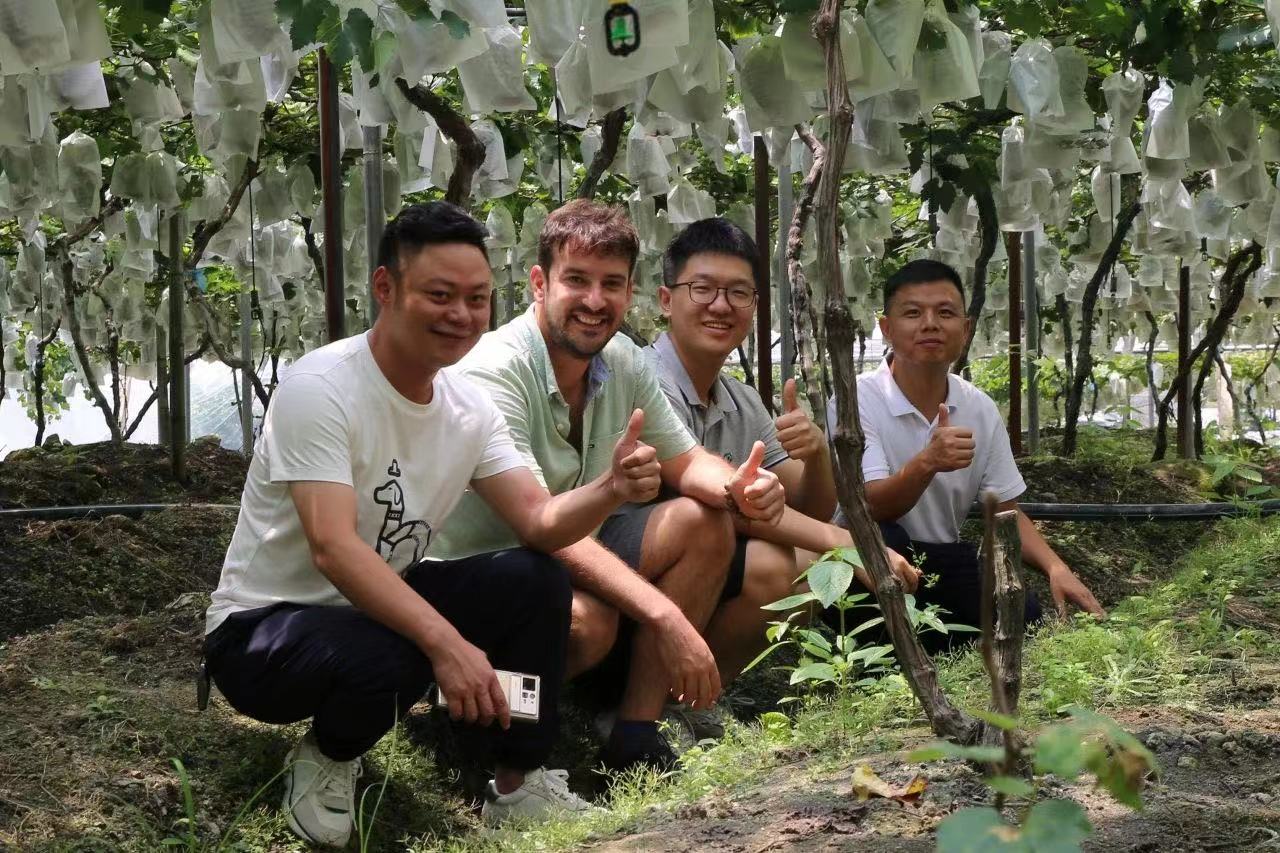
This summer, I participated in the “Governance and Politics” Practical Training Program in Fengyang Town, Shouning County, Ningde City. During the program, I had the opportunity to meet Juan Ortiz Freuler, a researcher from Harvard University and a Ph.D. student at the University of Southern California who was very interested in Chinese rural areas. With the consent of the local government, I invited him to visit Fengyang Town.
Together, we wore straw hats and went to the fields, enjoyed tea and watched traditional performances, visited ancient temples and ancestral halls, and explored the grape and tea industries. We also traveled to Xiadang Township, where we visited a thematic exhibition hall to learn about the history of Xiadang.
During these days, Juan witnessed the new look of Chinese rural areas, experienced the various measures taken by grassroots governments to improve people’s livelihoods, and understood the significant changes in the lives of farmers before and after poverty alleviation efforts. He gained insights into the development, harmony, beauty, and friendliness of Chinese rural areas. This experience made me realize that Chinese rural areas can serve as an important showcase for international communication and should be celebrated. They embody both the traditional and the progressive, combine a vibrant spirit with compelling stories, and play an essential part in portraying a genuine, comprehensive, and multi-dimensional image of China.
Wang Liyuan, School of Applied Economics, Doctoral Student, Class of 2020
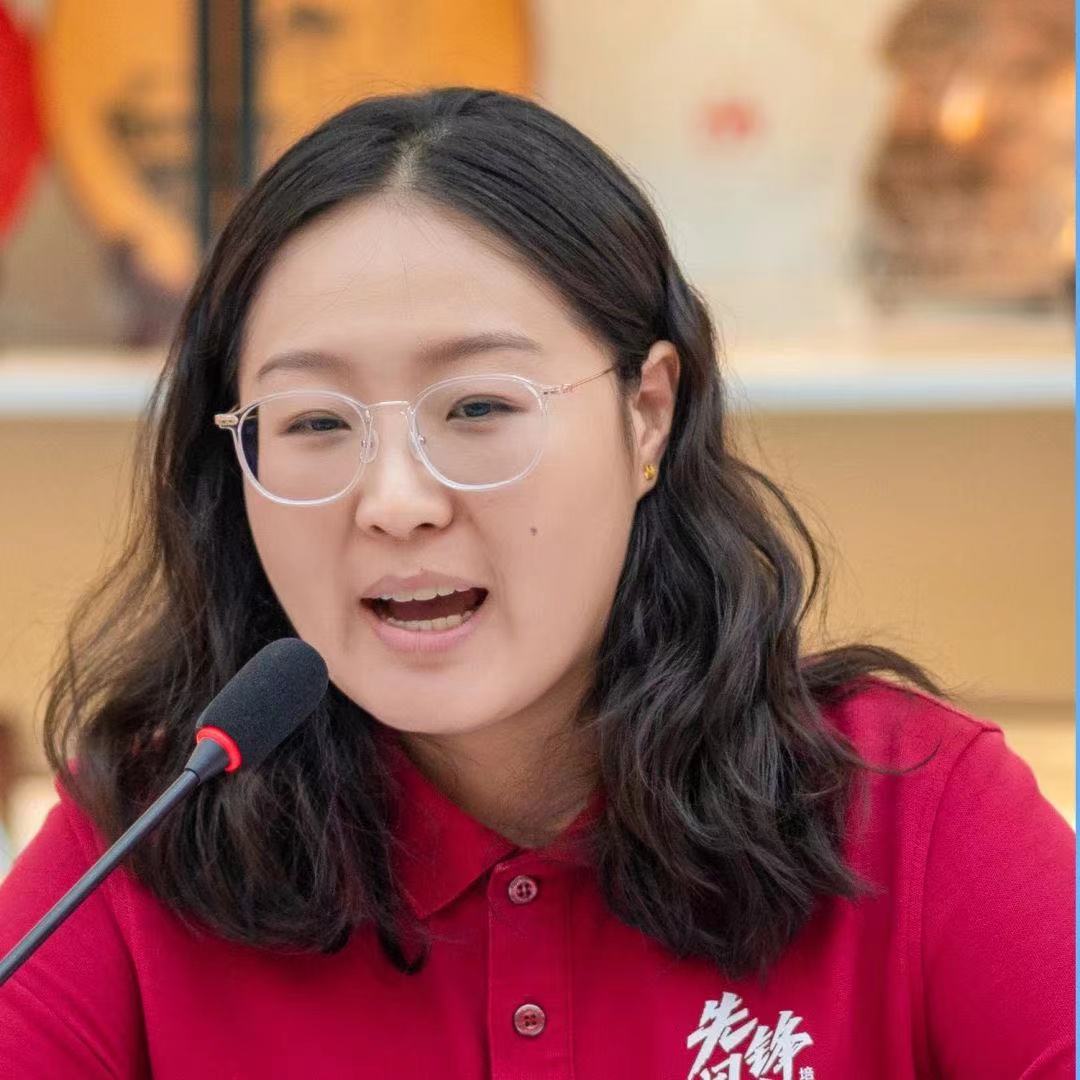
“The Frontier of the Nation” “832 Project” Social Research
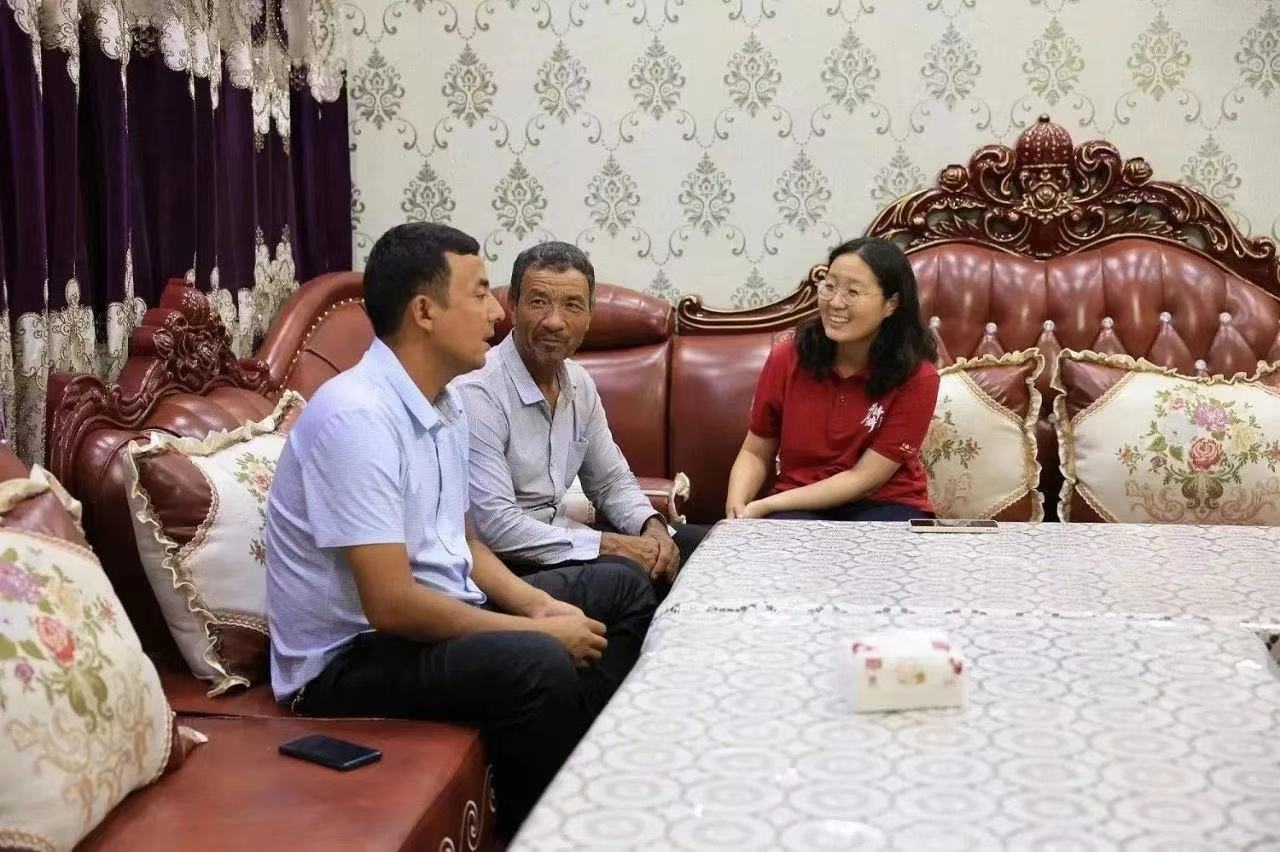
We approached our research findings with an economic framework and perspective, aiming to connect the vivid observations with the theories we learned in the classroom. Our focus was on technological progress and diffusion, as well as the accumulation of physical and human capital in underdeveloped areas. Seeing the secure and comfortable housing, local employment opportunities, herds of cattle and sheep, and vast tracts of arable land, we knew that the village has gone through tremendous transformation. We also noticed the accessibility of basic infrastructure and essential public services such as water, electricity, roads, education, and healthcare, all guaranteeing the well-being of ordinary people.
Zhang Letong, School of Finance, Undergraduate Student, Class of 2021
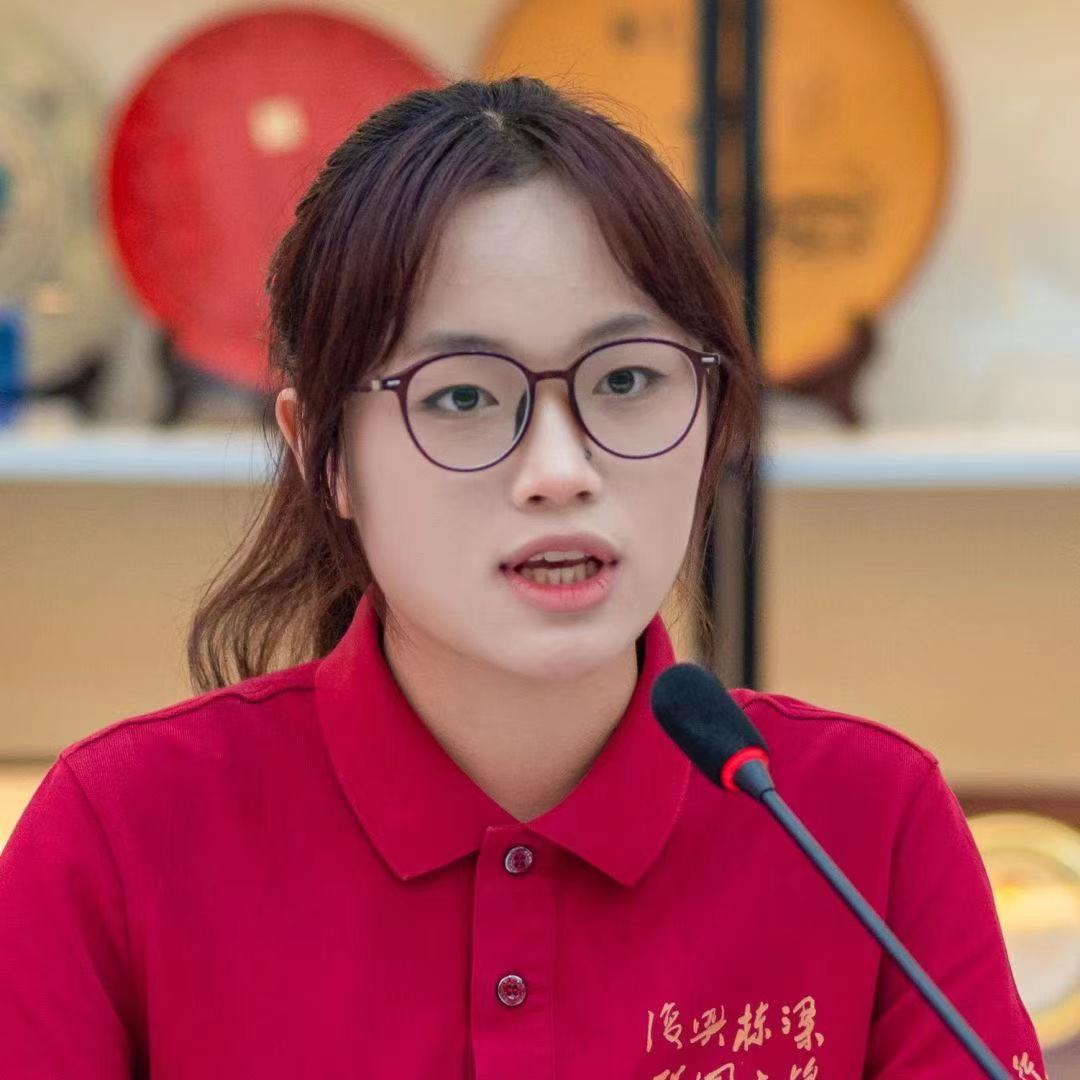
“One Thousand People, One Hundred Villages” Social Research
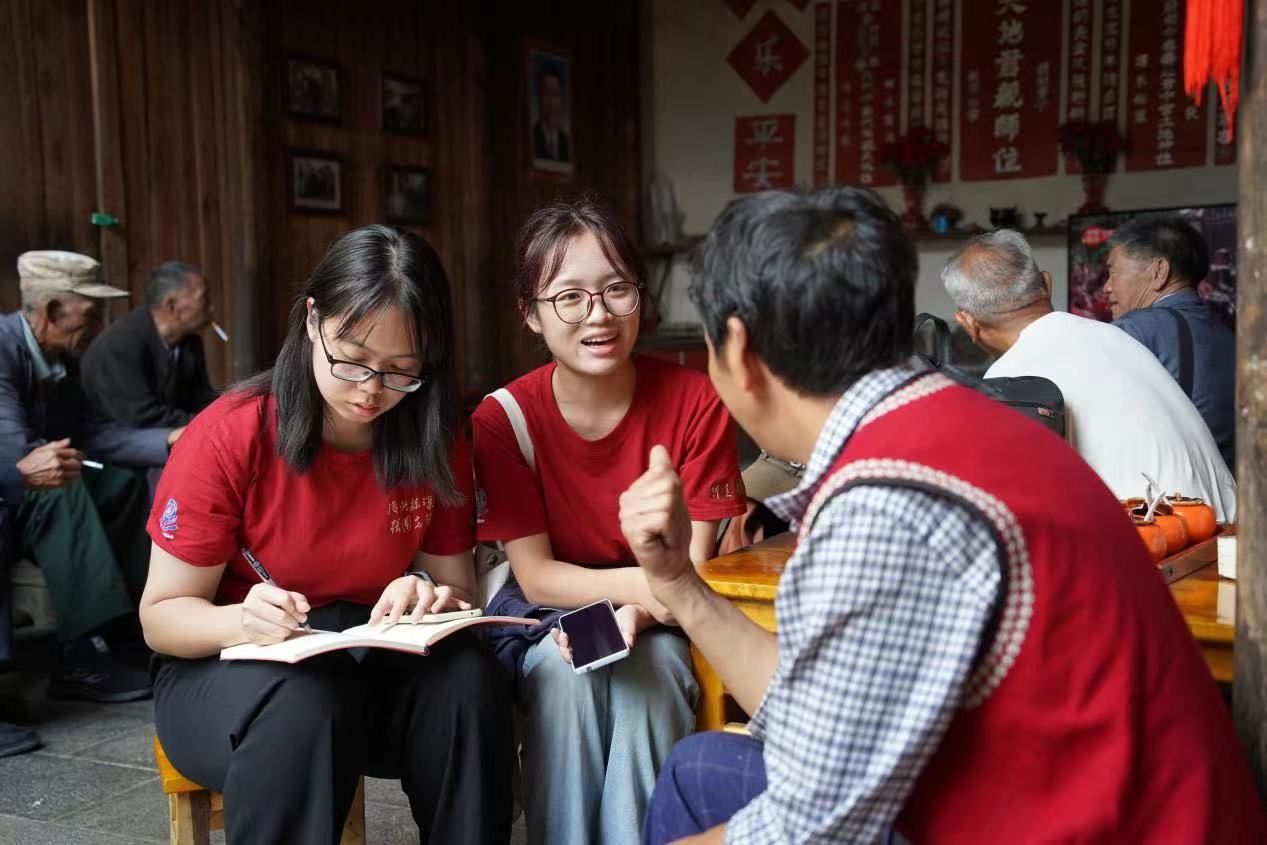
In this summer’s “One Thousand People, One Hundred Villages” social research program, we traveled to the Simola Wa Village in Tengchong City, Yunnan Province. We explored how this ancient Wa village transformed from a poverty-stricken village in the past into a nationally recognized tourist destination today. We witnessed the passionate efforts of people of various ethnic groups, experiencing the connection between theory and reality in rural revitalization practices. We realized the importance of ensuring that welfare policies effectively reach the remotest corners and help those truly in need. In the future, we will try our best to understand the real situation of rural China and comprehend the essence of rural life in China.
Chen Xiaoyue, School of Sociology and Population Studies, Master’s Student, Class of 2023
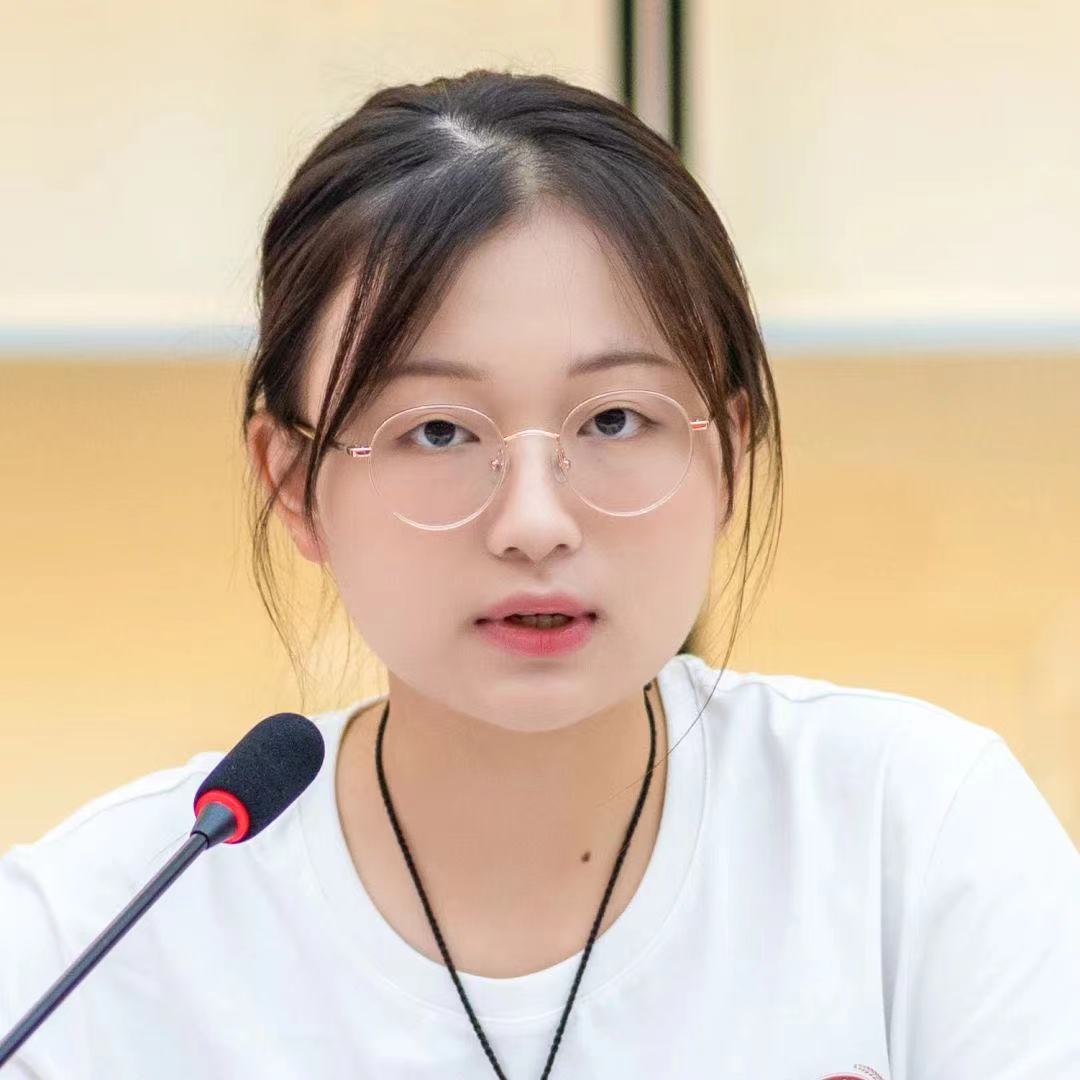
“Classroom in the Field” Teaching Program
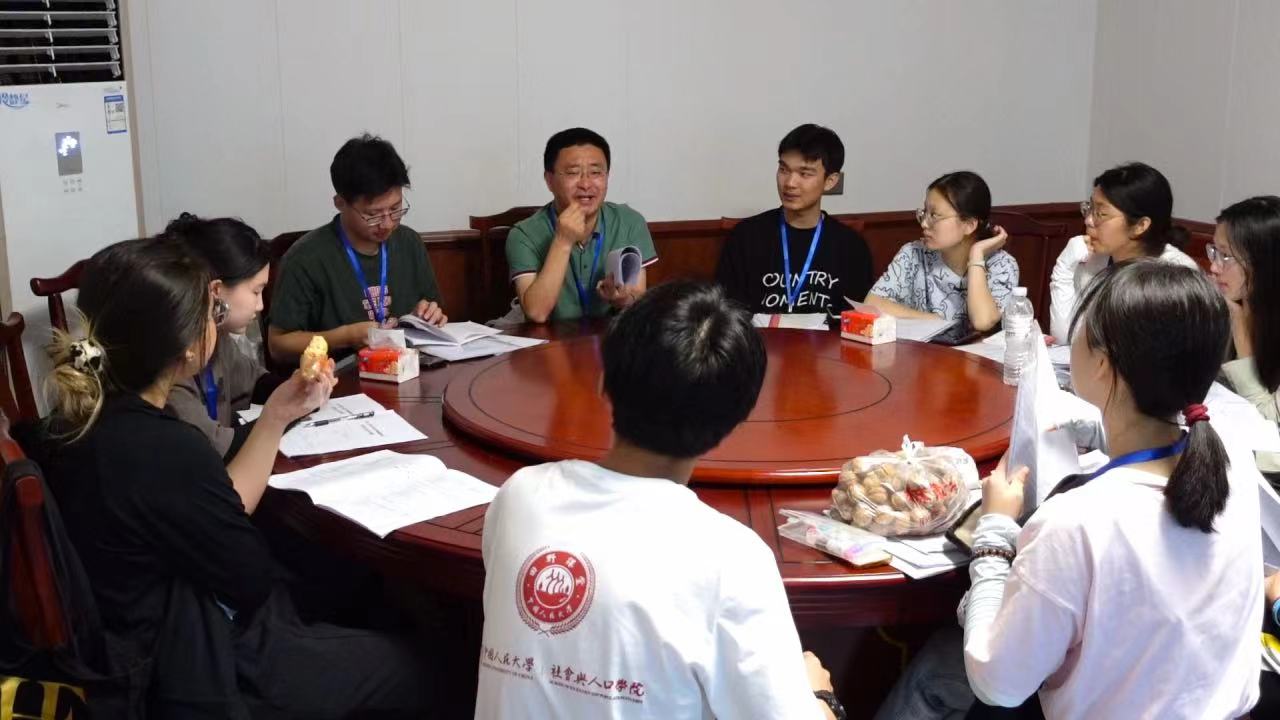
The classroom in the field is quite different from the classroom at school. We engaged with the real world, gained knowledge from grassroots cadres and the people, and established emotional connections with everyone we encountered in the field. We explored the construction of islands, investigated urban planning, conducted research on industrial development, and interviewed residents. As we saw female workers on assembly lines making headphones, tree-planting farmers under the land restoration policy, and intangible cultural heritage inheritors protecting their legacies, we became more compassionate and gained a deeper understanding of the social phenomena taking place on the vast land of China.
Marking a transformation in talent cultivation methods, the “Classroom in the Field” Teaching Project is leading teachers and students to depart from RUC’s campus, travel across the country, and move towards the boundless world.
Li Tian, School of Applied Economics, Doctoral Student, Class of 2022
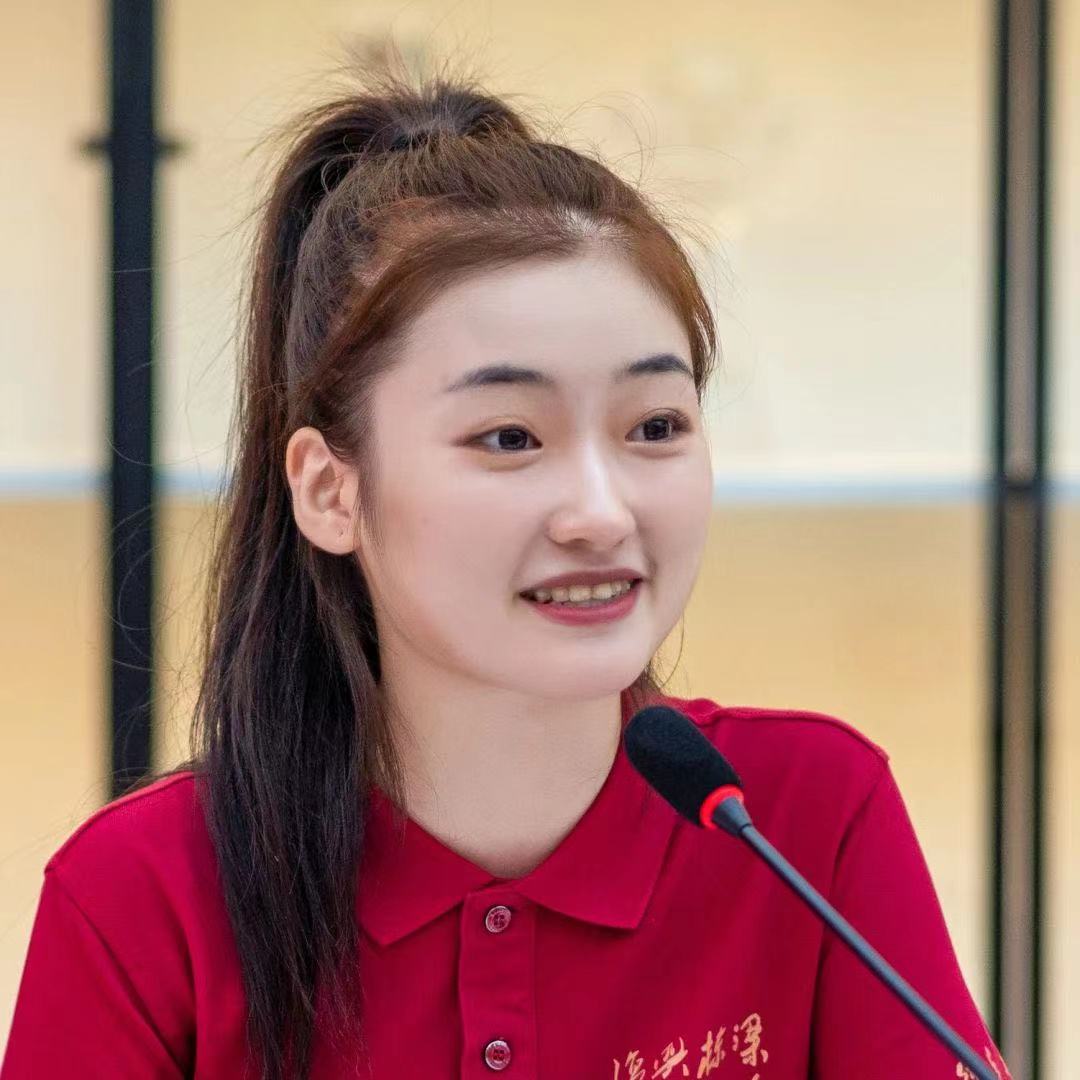
Doctoral Student Service Team
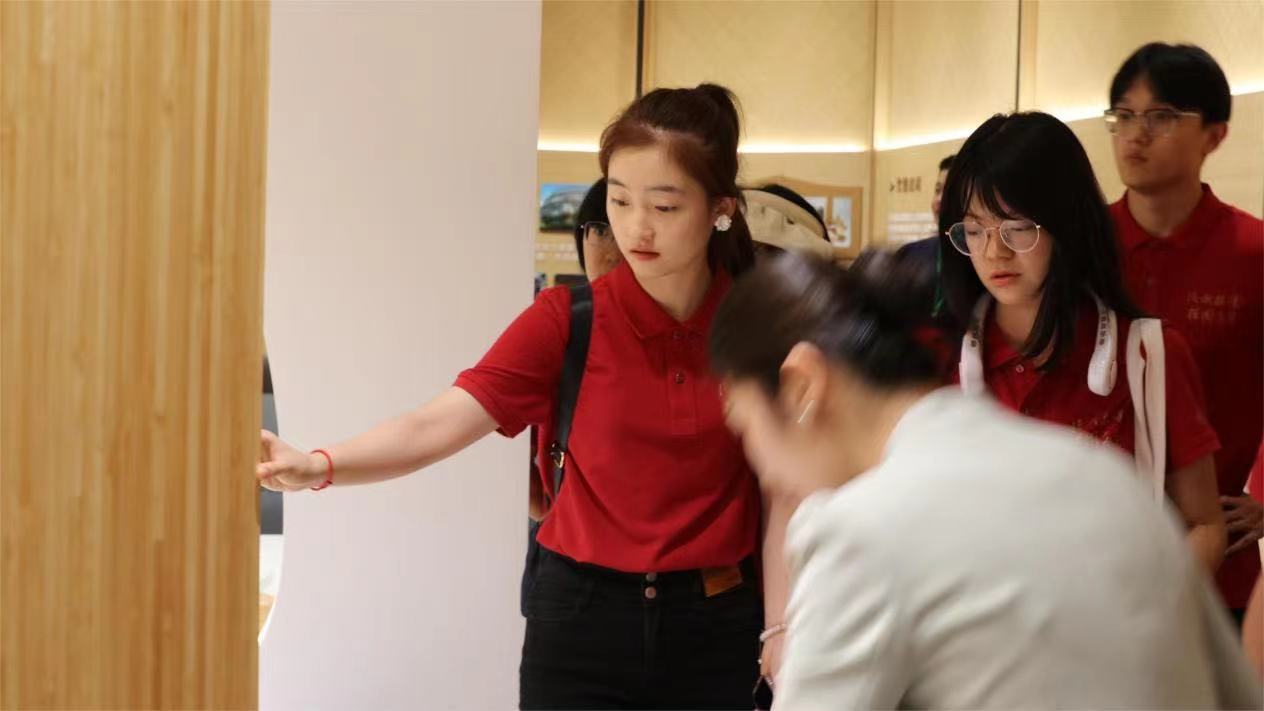
Our doctoral student service team adheres to the concept of “answering local questions with knowledge learned at school”. In the field investigations that extended through day and night, we have witnessed how knowledge “grows” from the fields. In the debates during various symposiums, we felt the complexity of social governance and the challenges of making progress in society. During the preliminary research, we encountered skepticism about Nanping’s development prospects. However, knowledge has given us a broader perspective, enabling us to see the immense potential for Nanping's development.
We have discovered that Nanping’s geographical disadvantages can be transformed into advantages. Located at the source of the Min River, Nanping serves as an ecological barrier in Fujian and is one of the regions with the richest ecological resources among areas with the same latitude. While protection may be seen as a constraint for individual administrative units or villagers, a well-preserved Wuyi Mountain is a true “treasure trove” for the entire region, serving as a “green bridgehead” for Fujian to connect with the integrated development of the Yangtze River Delta.
Chu Yifei, School of Labor and Human Resources, Undergraduate Student, Class of 2022

“Pioneers of Art·Art in Practice” Research Group
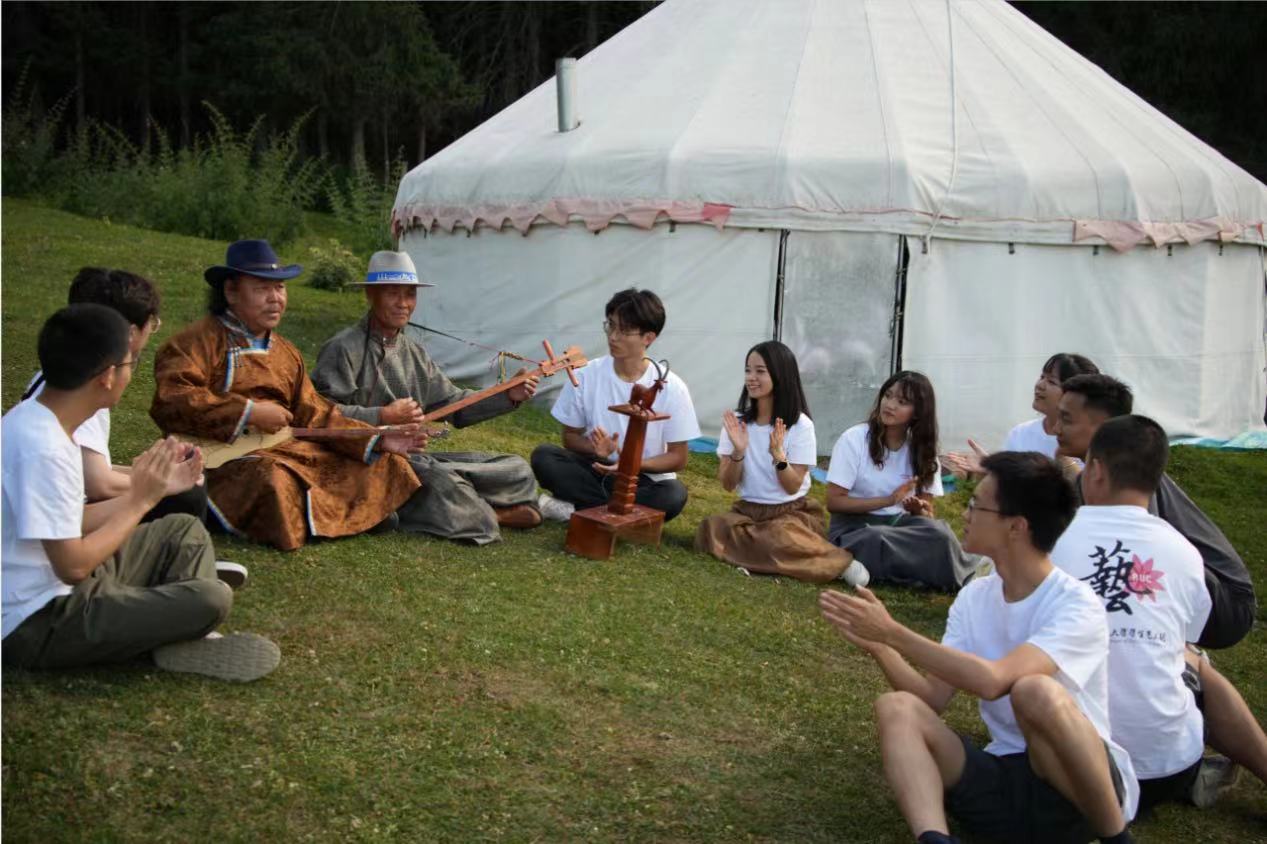
My friends from the art troupe and I traveled to the Tacheng, the westernmost border area of Xinjiang. We visited intangible cultural heritage inheritors Dali Ga, who specializes in Huma folk art, and Qingshan, who carries on the art of Uyghur traditional dance. In the melodious tunes of Khoomei singing, I felt their deep attachment and love for their homeland even though I didn’t understand their language. It was the first time I heard the voice of the land of Xinjiang and saw the art that people created on this very soil.
On the way back, I kept thinking about what I had seen and learned along the journey. Historical and cultural heritage carries the genes and bloodline of the Chinese nation, deserving the respect and reverence of young people. On the path of Chinese modernization, intangible cultural heritage has never been and should never be sidelined because it possesses inherent vitality and can be fully revitalized.
Ren Mengyao, School of International Studies, Doctoral Student, Class of 2023
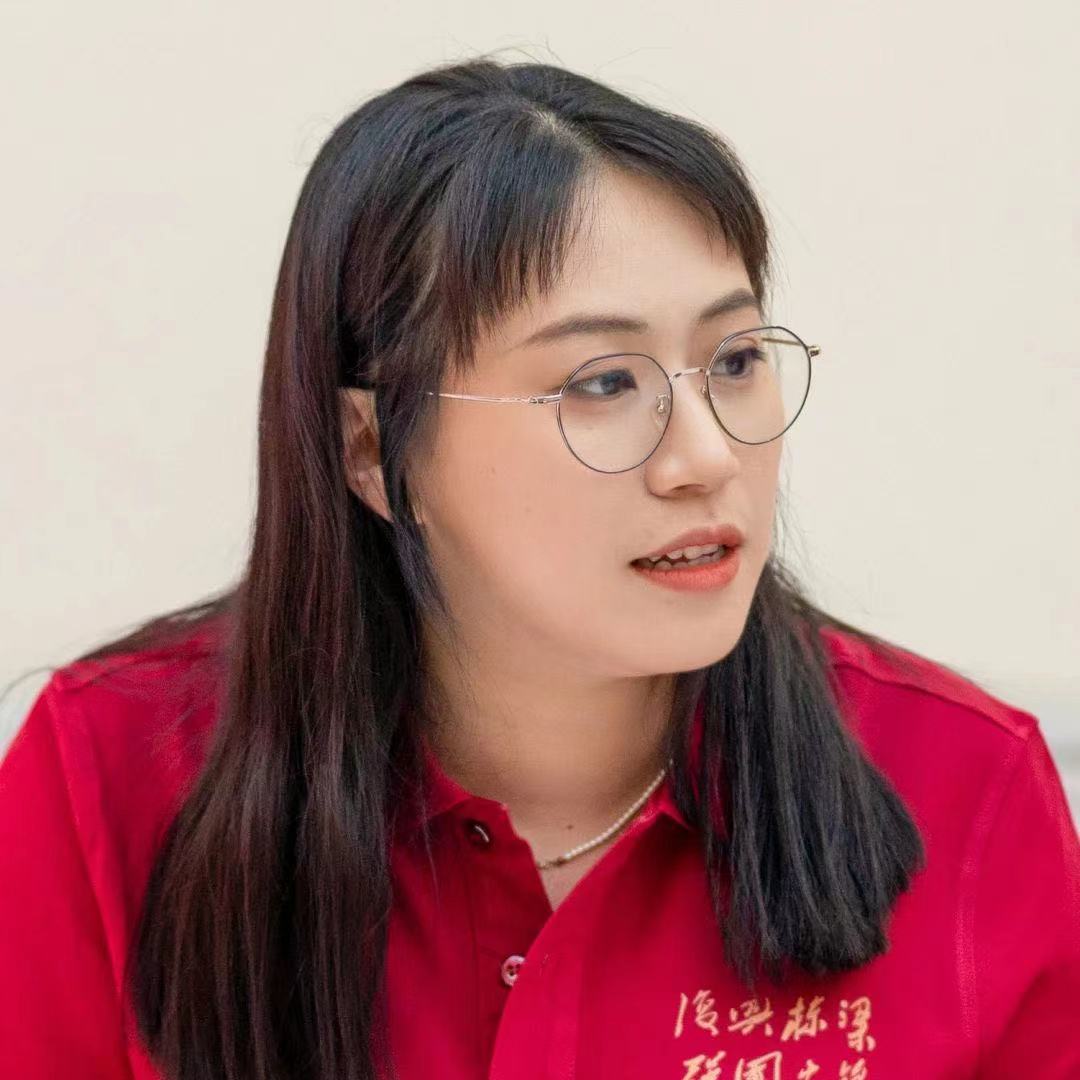
“Youth Thinking and Action” Special Training Program
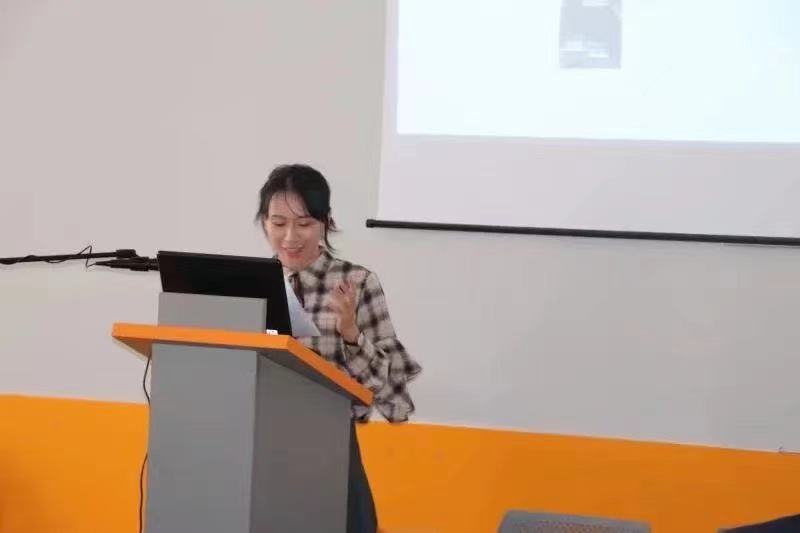
During my internship at the Dadong District Veterans Affairs Service Center in Dalian, I had the privilege of meeting Xu Lianyu, the wife of Qi Wenzhang, an honored veteran and army doctor. Mrs. Xu shared with me the stories of how she and her husband provided medical assistance during various battles and continued to save lives and provide free medical treatment to the people after retirement. This 86-year-old woman, with her simple words and firm beliefs, inspired everyone present.
In the future, I hope to have the opportunity to use my writing to record the memories of a generation of eyewitnesses and the stories of both soldiers and civilians. I aim to combine the power of knowledge, faith, and history, passing it down through generations and illuminating the passage of time with the light of humanity.



